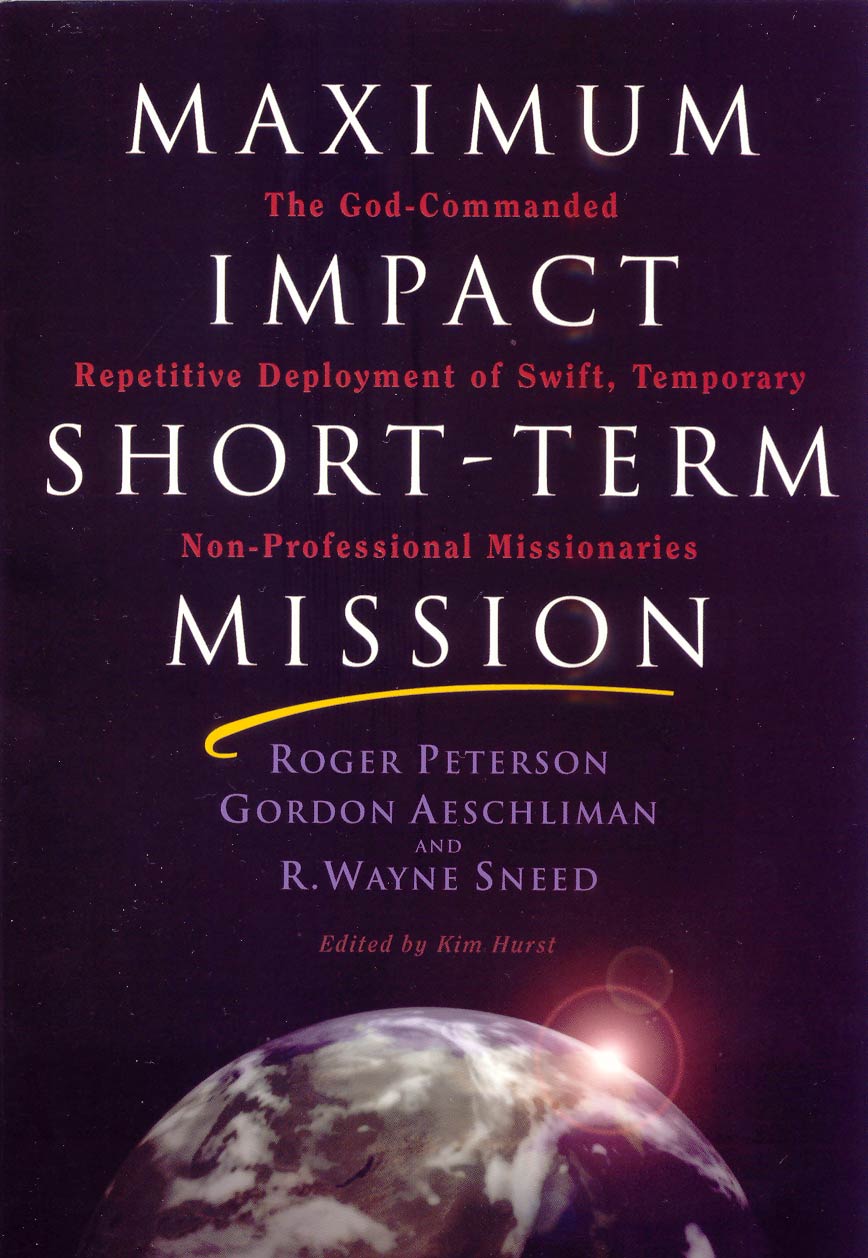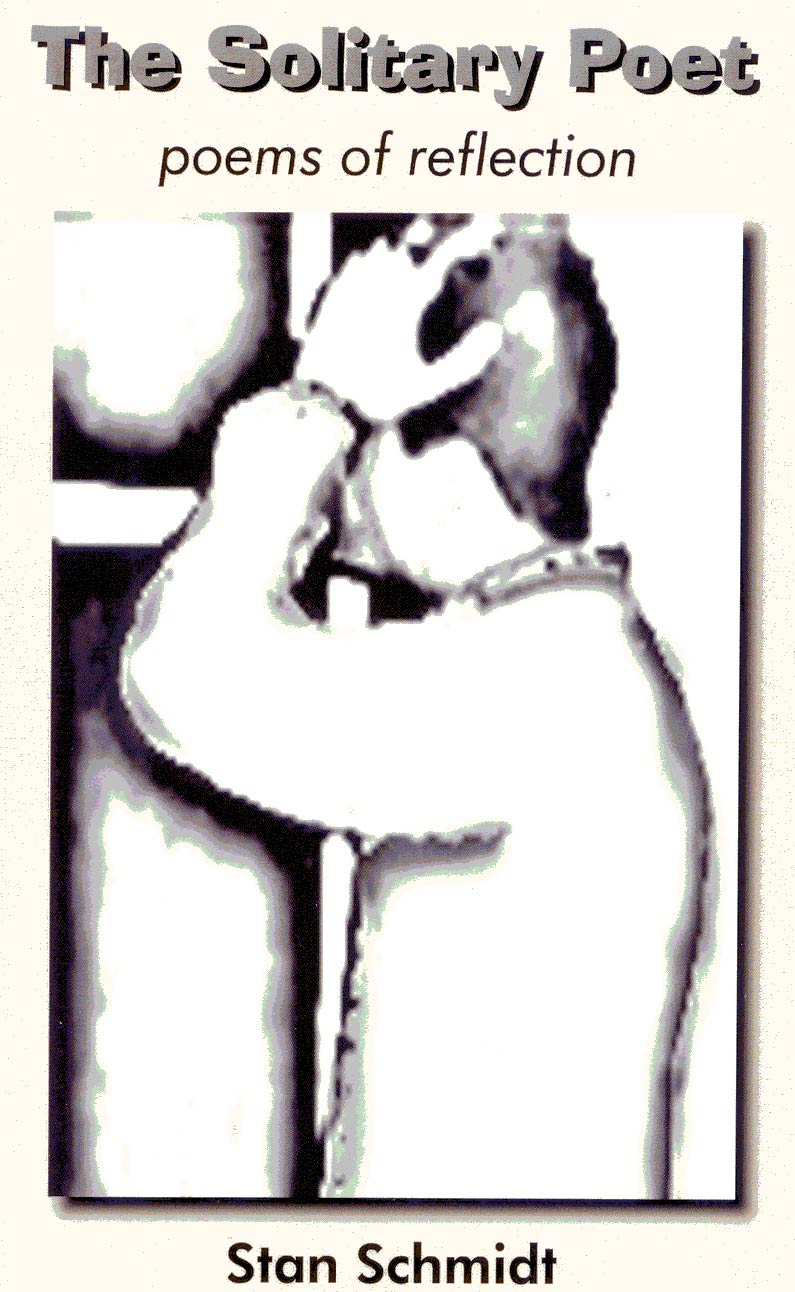AN APPEAL FOR SUPPORT
We invite you to support this ministry. Contributions in support of this Ministry can now be easily sent through PAYPAL. Please click on the PAYPAL LOGO, which will take you to PAYPAL website. Send your contributions to thirumalai@mn.rr.com. Also, please buy your books using the AMAZON link given in every page. Even the smallest contribution will help in running this journal.
BOOKS FOR YOU TO READ
AND DOWNLOAD
- THE LAST DAYS OF JESUS' EARTHLY MINISTRY Pastor Dave Strem with James Skeen
- SO, WHAT WILL YOU LEAVE BEHIND? LeRoy Dugan
- Standing on the Shoulders of Giants
Learning From Those Who Preceded Us in Faith Pastor Dave Strem with James Skeen - SAVED BY HIS LIFE
Understanding the Book of Romans Pastor Harold Brokke - MARRIAGE -- Building Strong Lives and Strong Relationships Pastor Dave Strem with James Skeen
- HELP THE HURTING, SUPPORT THE LAME!
Lessons from Isaiah by Pastor Dave Strem, and James Skeen - WARNINGS FOR AMERICA
Lessons from Isaiah by Pastor Dave Strem with James Skeen - THE SPIRIT'S PASSION
A Book of Christ-centered Poems and Free Verse by Pastor Harold Brokke - THE LAW IS HOLY by Pastor Harold Brokke
- WORLD MISSIONS - A HISTORICAL PERSPECTIVE
by Tom Shetler - LIVE A VICTORIOUS LIFE IN THE SHADOW OF THE CROSS! : INTERCESSION, WARFARE, AND DELIVERANCE
by Pastor Ted Hegre. - MISSING PIECES: THE INCOMPLETE GOSPEL by LeRoy Dugan
- LUTHER'S PROTEST by M. S. Thirumalai
- TELL ME IT'S TRUE ...
A Book Of Poems by Stan Schmidt - SOMETHING IS GREATER THAN WONDERS...
A Book Of Poems & Free Verses by Pastor Harold Brokke - GEMS OF TRUTH by Stan Schmidt
- WHERE IN THE WORLD IS GOD? by Alec Brooks
- LIGHT OF THE WORLD, an Original Screenplay by W. G. Orr
BACK ISSUES
- INDEX OF ARTICLES FROM NOVEMBER 2001 TO FEBRUARY 2005
- INDEX OF AUTHORS AND THEIR ARTICLES FROM NOVEMBER 2001 TO FEBRUARY 2005
SEND YOUR ARTICLES FOR PUBLICATION IN Christian Literature and Living.
- E-mail your articles and book-length reports to thirumalai@mn.rr.com.
- Your articles and booklength reports should be written, preferably, following the MLA Stylesheet.
- The Editorial Board has the right to accept, reject, or suggest modifications to the articles submitted for publication, and to make suitable stylistic adjustments. High quality, academic integrity, ethics, and morals are expected from the authors and discussants.
Copyright for the journal © 2005
M. S. Thirumalai
WALKING IN THE LIGHT
Ed Holt
THE GOSPEL OF JOHN AND 1 JOHN
The gospel of John was written just prior to the book of 1 John. The book of 1 John was written right around 85-90 AD. All the other original disciples had been martyred. Church history tells us Peter was crucified upside down. Peter was beheaded. And all the others died martyrs deaths, some in far away lands such as India and North Africa. John was the last living apostle. He was living in Ephesus and wrote to churches in Asia Minor. He had previously sent out the gospel of John that had a central theme of revealing the Person and work of Jesus Christ. John chapter 20: “I write these things so that you may know Jesus Christ.”
In 1 John he has a different focus. First John 5:13: “I write these things to you so that you may know that you have faith.” These two books of John can be thought of as a set. The gospel of John was the first volume and its function was to introduce the reader to Jesus Christ and His work. First John is the second volume designed to teach the reader about what it means to follow Jesus Christ as Lord and Savior and assure true children of God of their spiritual security in Christ.
USE OF COMPRISON AND CONTRAST
In 1 John, two of the main teaching tools John uses are comparison and contrast. He uses light and dark, life and death, true teachers of God’s word and false prophets, and children of God and children of the devil. After the initial greeting in verses 1-4, the first thing John says about God is that He is like light. “God is light and in him there is no darkness at all.” The nature of light is that it is revealing. It shines and exposes that which would otherwise exist in the darkness. No one has to hunt or search for light because it reveals itself. In fact, it reveals itself and those things that it shines on. That is the nature of light. It shines. And so it is with God. John says, “God is light.” It is His nature to reveal Himself.
John Stout says this, “It is His nature to reveal Himself and it is the property of light to shine and the revelation is of perfect purity and majesty. The miserable err of the heretics was due to their ignorance of God’s self-revelation of light.” He continues: “They could never have laid claim to some private knowledge that they moved from Jesus to a higher knowledge, more of a perfected faith apart from Christ. That they could have never laid claim to some private knowledge which they had initiated on their own conception of who God was…. God is light, diffusing, shining forth and manifesting Himself in whom there is no darkness at all, no secrecy, no hiding in the darkness. God is light. It is who He is, that is what He does.” Understanding what John is saying is important as we attempt to walk in ways that please God.
Turn with me to 1 John chapter 1 starting in verse 5. “This is the message we have heard from him and declare to you. God is light and in him there is no darkness at all. If we claim we have fellowship with him, yet walk in the darkness, we lie and do not live by the truth. But if we walk in the light as he is in the light we have fellowship with one another and the blood of Jesus his son purifies us from all sin. If we claim to be without sin, we deceive ourselves and the truth is not in us. If we confess our sins, he is faithful and just and will forgive us our sins and purify us from all unrighteousness.” Verse 10. “If we claim we have not sinned, we make him out to be a liar and his word has no place in our lives.”
THREE FALSE CLAIMS - IF YOU WALK IN DARKNESS, DO NOT CLIM YOU WALK WITH GOD
Because our fellowship with God requires us to walk in ways that please God, we must recognize three false claims from those who claim to be walking with God but who are not. The first false claim that you and I need to avoid if we want to walk with God is that of having fellowship with God while walking in darkness. It begins in verse 6: “If we claim to have fellowship with him, yet walk in the darkness, we lie and do not lives by the truth.” If you look at verse 6, you see that this person makes the false claim that he enjoys fellowship with God and yet live in ways contrary to His nature. This word “darkness” has a twofold reference. There is a sense of intellectual darkness and a sense of moral darkness. John is saying that these people are both doing bad things and believing lies and false teachings concerning Christ. While their lips profess to be following God’s ways, their lives and teachings reveal they are not. Darkness does not refer to moral and spiritual errors or honest mistakes. Darkness refers to a commitment to do that which is contrary to the nature and word of God!
John offers a remedy. In verse 7 he says that, “If we walk in the light, we have fellowship with one another and the blood of Jesus purifies us from all sin.” What John is saying is that we will enjoy fellowship with God if we do those things that are consistent with His holy and loving nature. The phrase here is “we have fellowship with one another.” The “one another” is linked to the “he.” That is, God. And if you and I confess our sins, if we walk in the light, we can enjoy fellowship with God. And that second part, “the blood of Jesus purifies us from all sin,” is an indication that when we confess our sin, when we are linked with God in fellowship, our sins have been blotted out and there has been a removal of sin’s stain.
This first group had a problem of believing that they could have fellowship with God and yet live in darkness, walk in sin. They were pretending to be someone they were not. We cannot have a lifestyle of sin and have fellowship with God. That is the way many people in our culture live. They are pretending to be someone that they are not. Pretending to be believers on the outside, but live like practical atheists who live as if there is no God. They profess God with their lips but deny Him with their life.
CLAIMING TO BE WITHOUT SIN
The second false claim that you and I need to recognize is the claim of having no sin nature. Look at verse 8: “If we claim to be without sin, we deceive ourselves and the truth is not in us.” One commentator said this about this passage--“This claim, having no sin nature, is worse than the first. In the first group, they at least conceded to the idea that there is the existence of sin while denying that it estranged them from God. But this group, this second group, flat out denies the existence of sin. Therefore, they have no need for Christ.” Verse 8 talks about the false claim of not having a sin nature. And John says that this is a lie. Where the first claim of pretending to be someone that you are not is lying to others, this claim, to have no sin nature, is lying to oneself. And the result is that the truth is not in us. The light is not in us.
John says that there is a correction in verse 9 to this position. Verse 9 says that we need to confess and walk in the light. “He is faithful and just and will forgive us of our sins, purify us from all unrighteousness.” The first phrase here is an indication that sin is a debt that He removes. “He is faithful and just and will forgive us of our sins.” That debt which you and I cannot pay, Christ paid for us, if we claim it as our own. If we ask Him from a sincere heart to forgive us, He will make us right in our relationship with Him. That second phrase “purify us from all unrighteousness” tells us that sin leaves a spiritual and moral stain on our lives yet cleansing takes place once confession is offered and forgiveness granted. Redemption has a twofold focus—removal of guilt before God and removal of sin’s dark stain on our souls.
We have a sin nature. Paul talked about his personal struggles in Romans 7. “I do the things I don’t want to do and I don’t do the things I want to do. Who can help me?” Referring to his sin nature. This second group made an error of believing that they did not have a sin nature. We have a sin nature. We are sinners by nature just as God is light by nature. Have you ever asked the question, “I am a good person, I do not do vile things, will God judge me?”
Yes! We must remember heaven is not a reward for those good enough to earn it. It is a place God has prepared for those who love Him. No unforgiven person shall enter there. We stand judged guilty, already. “For all have sinned and fallen short of the glory of God” (Romans 3:23). We are sinners by nature and we have to get right with God before we can fellowship with Him. The only way we can get right with God, the only way that we can have this sin nature scrubbed clean, is through the blood of Christ.
DO NOT CLAIM THAT SELF DOES NOT COMMIT SINS
The third false claim is saying that self does not commit sins. The second group had a sin nature that they wrestled denied. This group is wrestling with the idea of individual acts of sin. They claim that they have not sinned, that they do not have sins to confess. If the second group was worse than the first group, this group is the worst of all.
One commentator said this: “They conceded to the fact that sin would break their fellowship with God. That was the problem with the first group. But they claimed, ‘we don’t have any sin.’ They also conceded to the fact that sin does exist in our human nature. It is our disposition. That was the problem of the second group. And yet, they denied that they practiced sin and thus put themselves out of fellowship with God.” Look at verse 10. It contains another “if we claim” statement. “If we claim we have not sinned, we make him out to be a liar and his word has no place in our lives.” The false claim that John refutes here is one that they have no sin acts to come clean of. The first group was pretending to be someone they were not. They were lying to those around them. The second group was lying to themselves. This third group is calling God a liar.
Paul wrote in Romans 3:23, “For all have sinned and fall short of the glory of God.” It is a declaration by God that no one is righteous before Him. And since it is a declarative sentence it can be either true or false. If God is saying, “No one is righteous, you are all sinners.” And someone else is saying, “I’m not a sinner.” Guess what that person has done? He or she has called God a liar. And John says this is the worst of all.
THE PRODIGAL SON
I was reminded of the prodigal son. I like this story because sometimes I think of it as the anticipating father. The characters in the story are the father and his two sons. And one of the sons says, “Father, give me all of my inheritance.” And he gets it, and he goes off and Scripture says he goes to a faraway land and wastes and squanders it on wild living. And when the son ran out of money, he took a job with a pig farmer feeding the pigs. And Scripture says that he became so hungry that even the slop looked good and he ate it. Until one day he realized, “Listen, even my father’s servants have it better off than me right now. I’ll go back to my father and I will confess to him that I’m a sinner, that I’m no good.”
What is most interesting to me is that the son thought that his relationship with his father was severed. The son thought that he had control of the relationship and that his actions dictated the nature of the relationship. He was incorrect. The actions of the father showed otherwise. The father embraced the son upon his return. You and I, when we have accepted Christ as our personal Lord and Savior, are sons and daughters of God and nothing that we do will separate us from Him. The relationship is secure. The issue with the prodigal son, the wayward son, and the anticipating father, was a sense of broken fellowship. The young man never stopped being a son, while the farmer never stopped being his father. But it wasn’t until they came back together and the son confessed his sins before God and his father that fellowship resumed. This third group claimed they had no sin in their lives to confess. This third group has a fellowship issue. Those who do not think they have sins to confess are like the prodigal had he never went home but remained separated from his father.
WALK IN THE LIGHT!
If you and I want to walk in fellowship with God, then we need to walk in the light because in God there is no darkness. Like the first group, you have been living a lie to those around you. And acting as though you are a believer, but inside you are not. You can get that right with God by confessing. Or, maybe you find yourself in the second group. “I’m a good person. I go to church and I do this and I do that and I’m not as bad as so and so.” This second group claimed that they did not have a sin nature. Or, maybe you find yourself in the third group, who claim to have no sins to confess before God. Each of these groups calls God a liar in some way. They justify themselves at the expense of God. How can someone have fellowship with the Creator of the universe if they call Him a liar and disregard His redemptive ministry through Jesus Christ? John’s answer is that he or she cannot!
CLICK HERE FOR PRINTER-FRIENDLY VERSION
WHAT IS MAN? | THE LETTER TO PHILIPPIANS | YAHWEH, a poem | EVALUATING THE WORD OF GOD | CONFESSION AND COMMITMENT, a poem | WALKING IN THE LIGHT | HOME PAGE | CONTACT EDITOR
Ed Holt
trinityedholt@aol.com
Send your articles
as an attachment
to your e-mail to
thirumalai@mn.rr.com.





